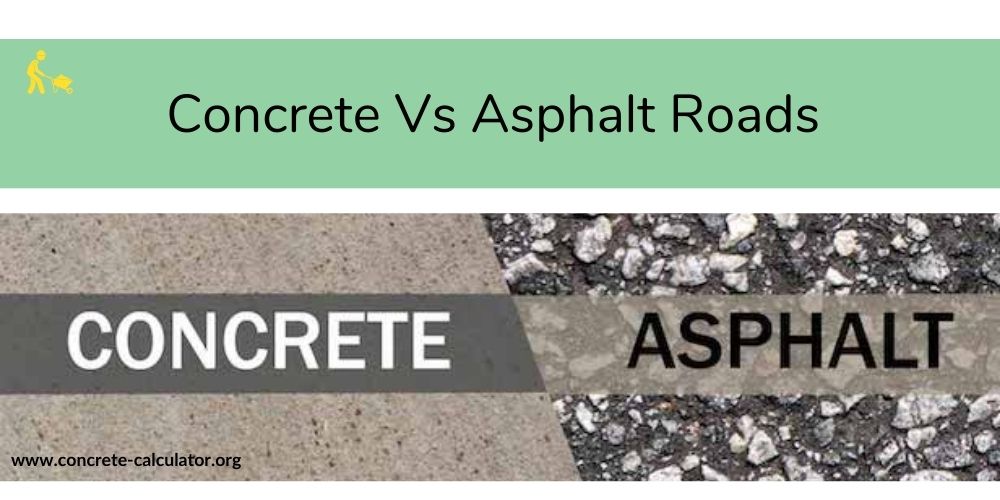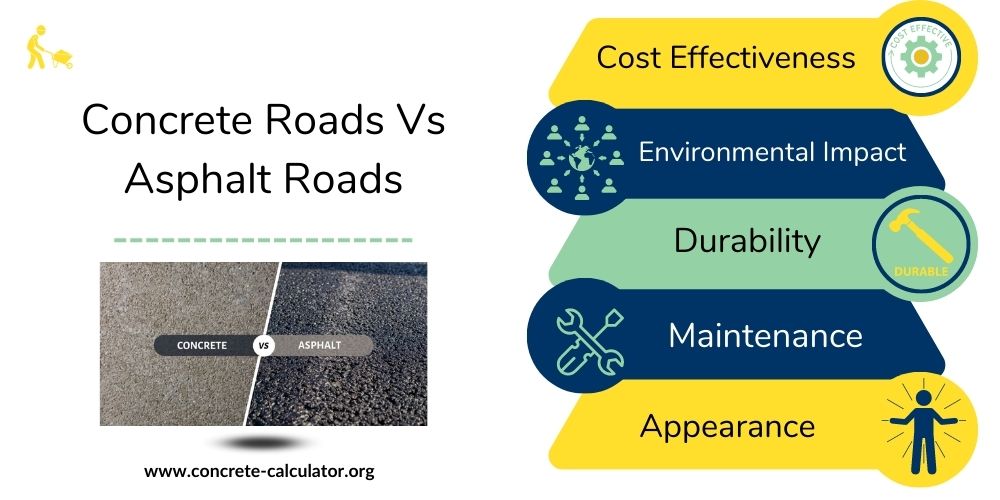When it comes to road construction, there are two primary materials in use – concrete, and asphalt. They are the two most popular choices because of their durability, versatility, and overall performance. However, deciding which is the better option can be a tough decision.
Both materials offer advantages and disadvantages, making it a matter of preference based on any given project. In this blog post, we’ll take a closer look at concrete vs asphalt roads, highlighting their pros and cons to help you make an informed decision.

Concrete Roads Vs Asphalt Roads
Concrete roads are typically more expensive to install than asphalt and require a longer curing time, making it difficult for large projects to be completed quickly. On the other hand, asphalt roads are less expensive to install and can be completed much faster than concrete roads.
Below are some of the main differences between concrete and asphalt roads:
1. Cost Effectiveness
Concrete roads require a higher upfront cost than their asphalt counterparts. However, asphalt needs to be replaced or patched more frequently than concrete, which can increase maintenance costs over time.
In general, concrete is a better long-term investment because it lasts up to twice as long as asphalt. However, for small projects or short-term road needs, asphalt might be the more cost-effective option.
Always Use Concrete Calculator To Measure Amount of Concrete Needed
2. Environmental Impact
Concrete is a more eco-friendly option compared to asphalt. The production of concrete does not release as many harmful gases into the atmosphere as asphalt production does. Additionally, concrete is made from natural materials, such as rock and limestone, which can be sourced locally.
On the other hand, asphalt is typically made using fossil fuels like petroleum, which contributes more to greenhouse gas emissions.
3. Durability
When it comes to durability, concrete arguably takes the cake. It can withstand extreme temperatures, and heavy traffic loads, and has a longer lifespan, with a lifespan of up to 30 years. Asphalt, on the other hand, has a lifespan of only 20 years, unless it undergoes routine maintenance.
Additionally, concrete is less prone to cracking, chipping, or deformities. Although, in the unlikely event of any fractures, repairing concrete poses a more significant challenge than fixing asphalt.

4. Maintenance
Both concrete and asphalt require some level of maintenance. However, asphalt needs more maintenance, including seal coating, crack filling, and pothole repair. Routine maintenance can help extend the lifespan of asphalt, but it’s still more prone to damage than concrete.
On the other hand, concrete only needs simple sealing after a certain period. Additionally, concrete is more resistant to the effects of weather and chemical spills.
5. Appearance
While this may not be a crucial factor, the appearance of roads can make a difference in urban planning or private projects. Concrete offers a more modern and clean look, with a gray or white color.
On the other hand, asphalt has a darker and more rugged appearance that may look more pleasing to some projects, especially in rural areas.
Also Read: Concrete Vs Mortar
FAQ’s
Are concrete roads better than asphalt?
Concrete roads are generally more durable and require less maintenance than asphalt roads, especially in extreme climates. However, concrete is more expensive to install and repair, making asphalt a more cost-effective option for road paving.
Are concrete roads louder than asphalt?
Yes, concrete roads tend to be louder than asphalt roads due to their solid construction. There is also more vibration when driving on a concrete road, which can be uncomfortable for passengers.
What is the lifespan of a concrete road?
The lifespan of a concrete road depends on its construction, the climate and weather conditions, and how well it is maintained. Generally, concrete roads can last up to 40 years with proper maintenance.
Related Post: How Many Yards of Concrete In a Truck

